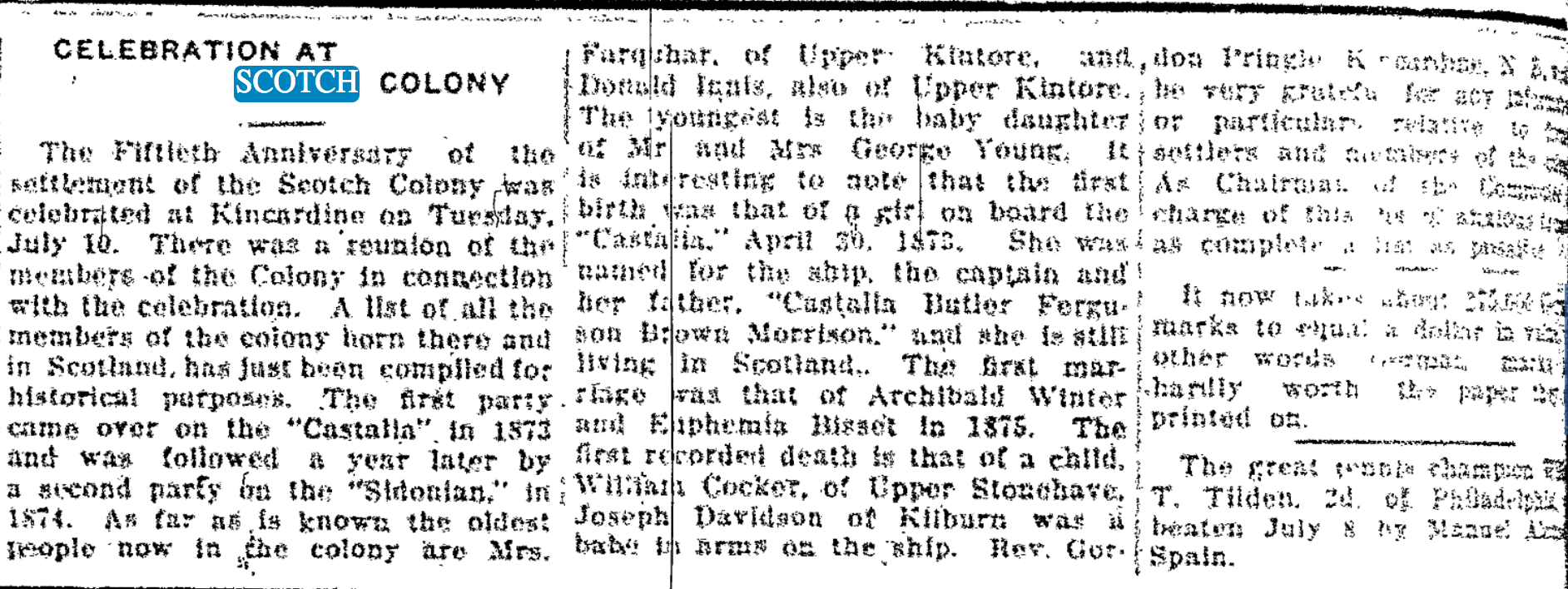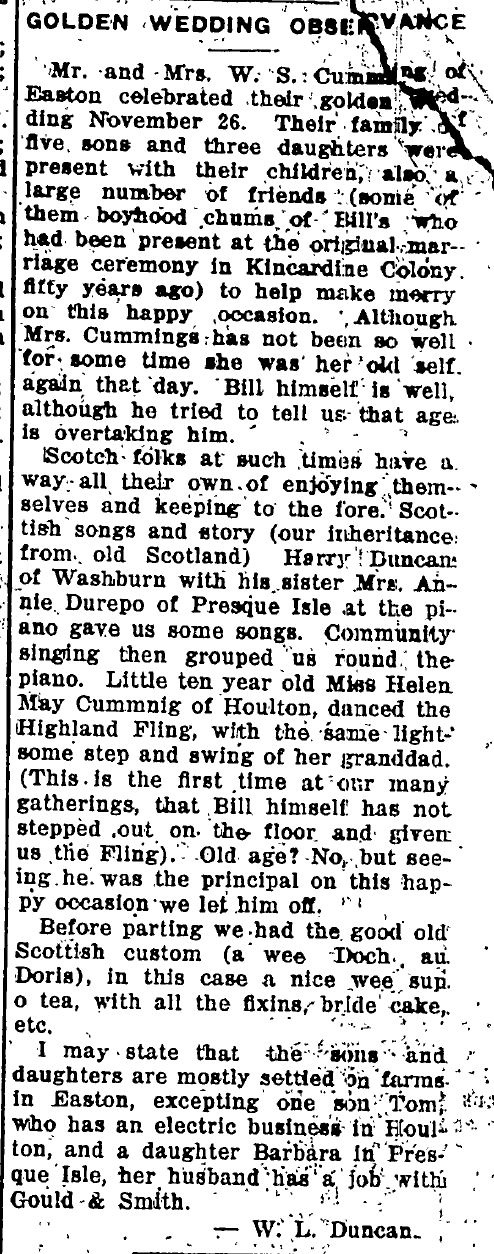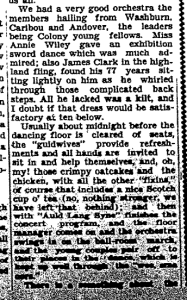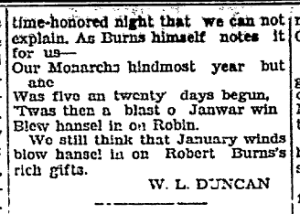The New Kincardineshire Church.– The settlers in New Kincardineshire, New Brunswick opened their new church on New Year’s Day as was sometime ago proposed. The day was fine and a vast crowd of neighbours from considerable distance on both banks of the river St. John attended the service, which was conducted by the Rev. D. M. Macline, D. D., of St. john, who was assisted by the Rev. C. N. Sinnet of Fort Fairfield, State of Maine, and we may add that the latter gentleman was accompanied by a considerable number of visitors from that State. The service commenced at 11 a.m., and by that being part of all the families in the new settlement, and the families long settled on the north bank of the great river, were present, and many friends who had driven on sleighs from distant localities. Dr. Macline opened the proceedings by praise, selecting the Old Hundredth Psalm. He then read II Chronicles, 6th chapter, then Rev. Mr. Melville, minister of the colony engaged in prayer; and Dr. Macline chose for his text Ephesians, chap. 5, verse 3, last clause–“Christ also loved the Church and gave Himself for it.” The discourse is described as very eloquent and was heard by the large audience with deep attention. At its close the 126th Psalm was sung. Next Dr. Macline prayed, and dedicated the building for divine worship. The audience were then addressed by the Rev. Mr. Sinnet, from Maine; and Rev. Mr. Melville, the minister of the colony, gave its history briefly, and remarked that the church, described as a very beautiful structure, had occupied more than twelve months since the foundation stone was placed in building. He said–“To God alone belongs the glory, but the joy and happiness are granted to us all in this good work.” The church was then named “Melville Church,” in commemoration of the great Scotch Reformer of that name, who died an exile from his native land on account of his efforts in favour of Presbyterian principles. Thereafter, Mr. Sinnet remarked that he greatly preferred that mode of conducting worship, both for its efficience and Scriptural simplicity. The 133rd Psalm was sung at the close of his remarks and the last four verses of the 122nd Psalm at the close of the service. Thereafter, the six elders and [seven?] deacons remained and closed the business of the day by a harmonious settlement with the contractors. Preceding the latter business, however, Mr. Watt, in name of the young people of the Kintore Road, presented Mr. Melville, their pastor, with a very fine family Bible. The church is described as in every respect a handsome and commodious building on the ground selected when the colony was formed and which will accomodate the River Bank population for several miles on each side; who are descended chiefly from the families of Scotch soldiers, who were discharged with grants of land and settled there and have prospered; but had neither church nor minister near them during all thse 64 years, and only occasional Sabbath service in a schoolhouse. The new settlement has introduced a new mode of thought, and has been the happy medium of bringing regular religious services to a neglected district. The amount collected for the cost of the church out of the colony was [535?] dollars, with 105 dollars for various matters therewith connected; and the bell, valued at 500 dollars, is the gift of the Anchor Line Shipping Co. of Glasgow. The erection of the church, preceded by two school houses, by the settlers in 6 1/2 years from the arrival of the earlier portion, is the best reply that can be given to the oft repeated statement that the new colonists have not before them reasonable hopes of succes on their own land, that they are rapidly bringing under cultivation.





